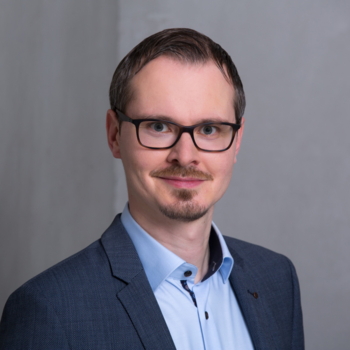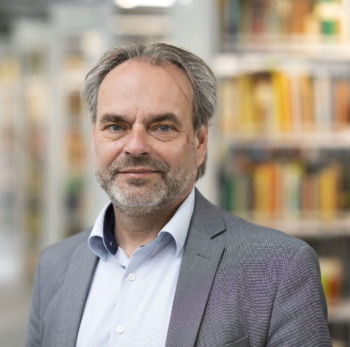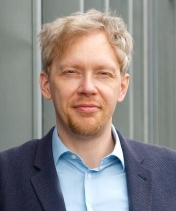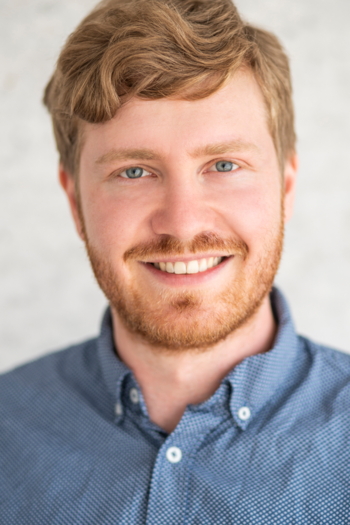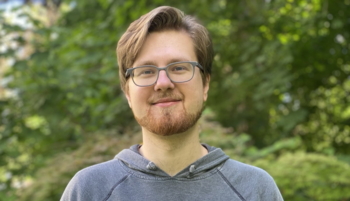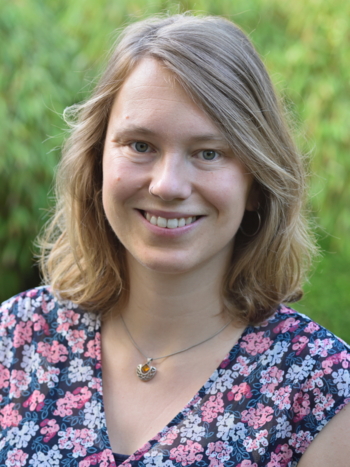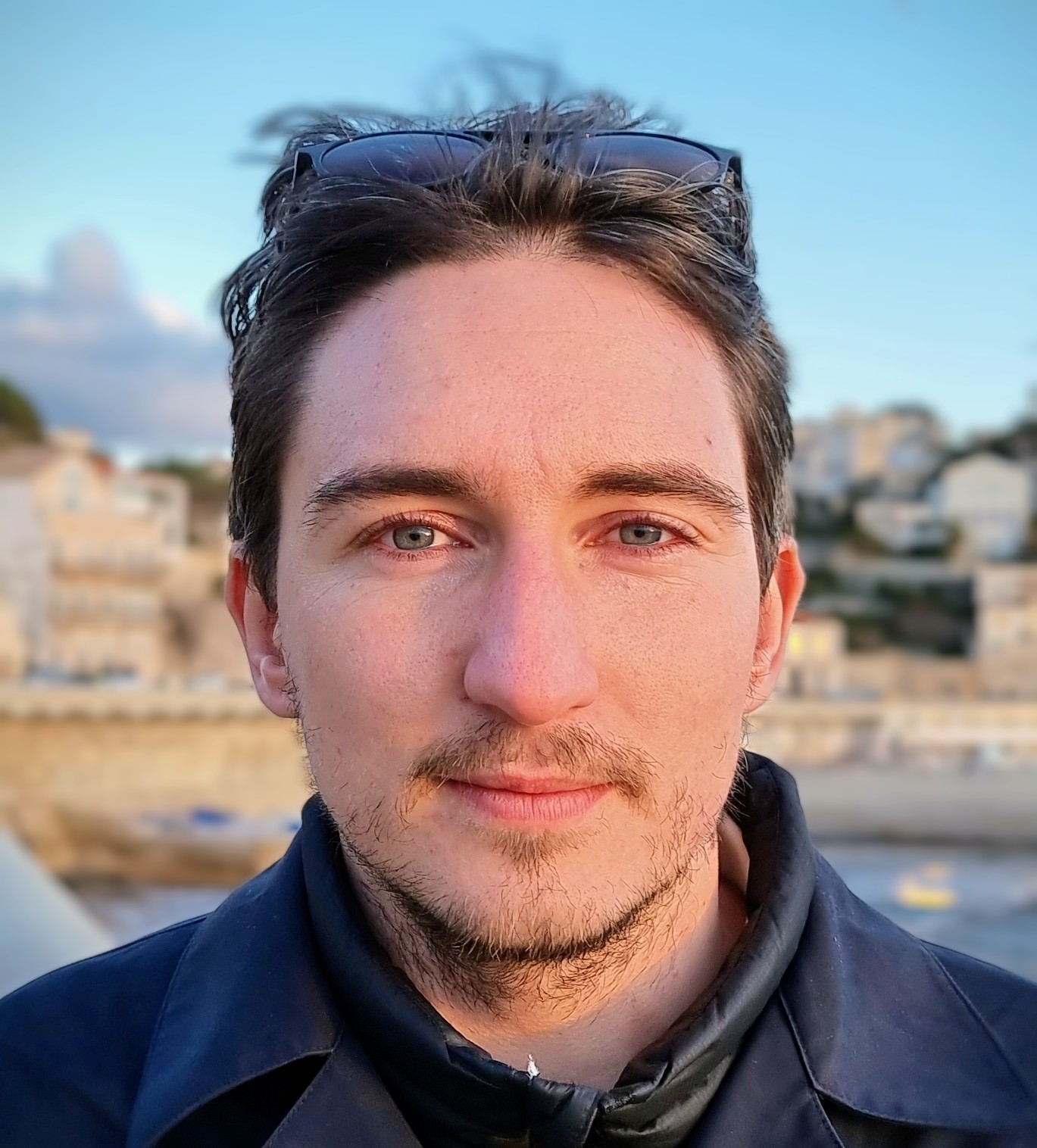

Priv.-Doz. Dr. Michael Homberg
Dr. Michael Homberg is a lecturer in modern history at the University of Potsdam and has been a research associate at the Leibniz Centre for Contemporary History in Potsdam since October 2020. Previously, he taught and researched at the Historical Institute of the University of Cologne and was a member of the interdisciplinary research group “Transformations of Knowledge” at the a.r.t.e.s. Research Lab Cologne. As a Feodor Lynen Research Fellow, his postdoctoral career took him to Stanford University, UC Berkeley, and Harvard University. He has received scholarships from the Cusanuswerk, the Max Weber Foundation, and the Alexander von Humboldt Foundation. He won the Offermann-Hergarten Prize in 2017 for his dissertation Reporter Streifzüge. For his research on the history of the “media and information society”, he received the “Zeitgeschichte digital” award in 2021 and the Heinz Maier-Leibnitz Prize from the DFG in 2023. His research interests include the media and cultural history of the 19th to 21st centuries, the history of globalization, and the social history of the digital age.
As part of the “Digital Inequalities” research group he heads, he is investigating the triumph of new digital experts and digital know-how in the world of work.
C.V.
since October 1, 2020
Research Associate at the Leibniz Centre for Contemporary History Potsdam in Department III “Media and Information Society”
Head of the Leibniz Research Group “Digital Inequalities. Divides, Hierarchies, and Boundaries in Germany, 1970s to 1990s” (9/2023)
2022
Habilitation at the University of Potsdam (completion of the colloquium 2/2022)
Title of the manuscript: “Digital Independence. India and the Computer. An international history, 1947-2020”. Reviewers: Prof. Dr. Frank Bösch, Prof. Dr. Dominik Geppert, Prof. Dr. Michael Mann
2021
Fellowship at the M.S. Merian - R. Tagore International Centre of Advanced Studies “Metamorphoses of the Political” (ICAS:MP), New Delhi (7/2021-10/2021)
2020 - 2023
DFG, Own position, SPP 2267: “Data Work. The Development of the IT Service Industry in Germany, 1950s to 1990s”
2019 - 2020
Feodor Lynen Return Fellowship of the Alexander von Humboldt Foundation at the ZZF Potsdam
2019
Gerald D. Feldman Travel Fellowship of the Max Weber Foundation: India Branch Office, New Delhi (7/2019-8/2019), German Historical Institute London (8/2019-9/2019)
2018 - 2019
Feodor Lynen Research Fellow (Research Fellowship) of the Alexander von Humboldt Foundation at Stanford University (1/2018-12/2018), UC Berkeley (7/2018-12/2018) and Harvard University (1/2019-6/2019)
2016 - 2017
Research assistant at the Chair of Modern and Contemporary History (Prof. Dr. Hans-Peter Ullmann) at the University of Cologne
2015 - 2016
Research assistant in the junior research group “Transformations of Knowledge” at the a.r.t.e.s. Graduate School for the Humanities Cologne; lecturer at the Institute of History, University of Cologne
2015
Disputatio (7/2015) - Doctorate (Dr. Phil.) (summa cum laude) (12/2016)
Title of the dissertation: “Reporter-Streifzüge. Metropolitan news culture and the perception of the world, 1870-1918”. Reviewers: Prof. Dr. Torsten Hahn, Prof. Dr. Hans-Peter Ullmann
2013 - 2015
Doctoral scholarship from the a.r.t.e.s. Graduate School for the Humanities Cologne
2012 - 2013
Research assistant at the Chair of Modern German Literature, Institute for German Language and Literature I, University of Cologne
2011 - 2012
WHK in the field of Modern and Contemporary History at the University of Cologne, Humboldt-Universität zu Berlin and Ludwig-Maximilians-Universität München
2006 - 2011
Studied Medieval and Modern History, German Philology and Political Science at the University of Cologne (from 2008: Cusanuswerk scholarship)
2006
Abitur at the Bischöfliches Pius-Gymnasium Aachen
1987
born in Aachen
Research Interest
Media and cultural history of the 19th and 20th century
Social history of the digital age
History and theory of globalization
History of human rights, humanitarianism, and development policy
Cultural history of metropolitan modernity in Europe and the USA
Academic Awards
10/2023: Heinz Maier-Leibnitz-Preis 2023 (Pressemitteilungen DFG | ZZF / Leibniz | UP | MWFK B.)
09/2023: Conrad Matschoß-Preis des VDI für Technikgeschichte (für die Habilitation "Digitale Unabhängigkeit") (Interview VDI-Nachrichten)
10/2022: Young Leaders Network, Science and Technology in Society Forum 2022, Kyōto, Japan
11/2021: Zeitgeschichte Digital-Preis (für den Artikel "Computerliebe")
12/2017: Offermann-Hergarten-Preis (Universität zu Köln, für die Dissertation "Reporter-Streifzüge")
10/2017: Shortlist, Opus Primum – Förderpreis für die beste Nachwuchspublikation des Jahres (Volkswagen Stiftung, für die Dissertation "Reporter-Streifzüge")
Contact
Leibniz-Zentrum für Zeithistorische Forschung Potsdam
Am Neuen Markt 1
14467 Potsdam
Büro: Am Neuen Markt 1, Raum 2.13
Tel.: 0331/74510-122
E-Mail: homberg@zzf-potsdam.de
Prof. Dr. Eckhardt Fuchs
Leibniz Institute for Educational Media | GEI
Prof. Dr. Eckhardt Fuchs has headed the Leibniz Institute for Educational Media | Georg Eckert Institute since October 2015. He became a Research Coordinator at the Georg Eckert Institute in 2007 and served as Deputy Director from June 2009 to September 2015.
He studied at the University of Leipzig from 1983-1988 and received his doctorate in 1992. He has worked as a historian at numerous academic institutions - the Historical Commission of Berlin, the John F. Kennedy Institute of the Free University of Berlin, the German Historical Institute in Washington, and the Max Planck Institute for the History of Science in Berlin. His research interests include globalization processes in the education sector with a special focus on international organizations (global governance), education policy in Europe, the history of transnational educational relations, and the global history of textbook revision and teaching and learning materials.
From 2001 to 2007, Eckhardt Fuchs worked as a research assistant at the Chair of Educational Science I at the University of Mannheim, where he habilitated in 2004. He was a fellow of various organizations, is a member of the editorial board of the journals “Comparativ” and “Paedagogica Historica”, is a member of numerous professional societies and a reviewer for foundations and journals. Eckhardt Fuchs has been a full historical and comparative educational research professor at TU Braunschweig since 2011. From 2012 to 2015, he was President of the International Standing Conference for the History of Education, the international professional association for historical educational research (ISCHE).
Prof. Dr. Rüdiger Bergien
Hochschule des Bundes für öffentliche Verwaltung
Fachbereich Nachrichtendienste
Vita
Since 11/2019
Professor of History of Intelligence Services at the Department of Intelligence Services at the Federal School of Public Administration
2017-2019
DFG project (“own position”) “Computerization and knowledge production in East and West German intelligence services and police authorities, 1960-1990” at the Centre for Contemporary History in Potsdam (ZZF)
2017
Habilitation at the Faculty of Philosophy at Humboldt University Berlin, Venia for Modern and Contemporary History
2014-2017
Postdoc in the project group “Paths to the Digital Society” at the ZZF Potsdam
2012-today
Lecturer and private lecturer (since 2017) at the Humboldt University Berlin (HU)
2009-2013
Postdoc in the project group “Social History of the SED” at the ZZF Potsdam with the research project: “The Apparatus of the Central Committee as the Government Center of the GDR”
2008
Doctorate in Modern and Contemporary History (“summa cum laude”) at the University of Potsdam
2006
Visiting Lecturer at the University of Chicago
2005-2010
Teaching at the Department of History at the University of Potsdam
2005-2009
Research assistant at the Chair of Military History at the University of Potsdam
1997-2003
Studied history and German language and literature at the University of Göttingen, the University of Hagen and the Free University of Berlin
Academic Awards
2018 "Carl-Erdmann-Preis für herausragende Habilitationen" des Verbands der Historiker und Historikerinnen Deutschlands (VHD)
2018 Übersetzungspreis "Geisteswissenschaften international" des Börsenvereins des Deutschen Buchhandels für die Habilitationsschrift
2010 "Werner-Hahlweg-Preis" (2. Preis) für die Dissertation
Dr. Johannes Kleinmann
Dr. Johannes Kleinmann is a historian and economist. Since November 2024, he has been a researcher at the Leibniz Center for Contemporary History in Potsdam. He received his PhD from the European University Viadrina in Frankfurt (Oder) and the University of Vienna with a dissertation on Polish gender history in the long period of transformation (1980-2004). His research interests include the economic and gender history of Eastern Central Europe in the 20th and 21st centuries. His research interests include the economic and gender history of Eastern Central Europe in the 20th and 21st centuries, the history of labor worlds, and the emergence and reproduction of inequalities.
In November 2024, he joined the Leibniz Centre for Contemporary History in Potsdam as a research associate. As part of the research group, he is investigating how concepts of leadership and management, internal company structures and hierarchies and concrete work processes have changed in the course of the digital transformation and what social inequalities this change has produced (‘A Class of Experts? Computer Work and its Hierarchies’).’
Tim Schinschick
About
After completing my studies in history and political science in Heidelberg, I began my doctorate there on the history of computer education in Baden-Württemberg, which I have been developing further in the “Digital Inequalities” project at the Georg Eckert Institute in Braunschweig since July 2023. In addition to my passion for digital history, my research interests lie in historical futurology and public history, particularly in the design of digital history communication formats.
Computer education for all? Educational policy and pedagogical visions of computer education in general education schools in Baden-Württemberg, 1977-2004
This PhD project examines educational policy and media pedagogical discourses on “computer education” using the case study of Baden-Württemberg from the late 1970s to the early 2000s. It examines the problems and potentials that the actors (educational politicians, teachers, parents, officials, and companies) attributed to the use of computers in schools and how schools should prepare their students for an anticipated “computerized” society from the perspective of the respective actors. The work places a special focus on the discussions about the possible (re)production or leveling of inequalities through computer education.
Contact
Georg-Eckert-Institut – Leibniz-Institut für Bildungsmedien
Freisestraße 1
38118 Braunschweig
tim.schinschick@gei.de
Nina Neuscheler
After completing my bachelor's degree in political science and history, I completed various stages of my master's degree in contemporary history in Potsdam. I have been working on my doctorate at the Leibniz Center for Contemporary History in Potsdam since July 2023. My research interests lie in the areas of German-German integration history, the culture of remembrance, National Socialism, architecture and urban planning.
Gender-related digital inequalities
This PhD project examines the influence of digital change on gender inequalities in the FRG and GDR since the 1970s. It asks whether digitalization processes perpetuated, weakened or newly produced inequalities in gender relations. In the sense of a cultural history of digital change, the aim is to show how technical, cultural, and social developments in both German states were interwoven from the 1970s until after reunification and contributed to shaping a social order along the category of “gender” that still has an impact today.
The period under investigation extends from the digital-historical “epochal threshold” of the 1970s to the 1980s, the decade of new enthusiasm for home computers, and various computer (sub)cultures emerged through the 1990s. In the 1990s, the computer had finally changed from a calculating machine to a communication medium, partly due to the triumph of the Internet. As such, it was widely anchored in (reunified) West German society. The comparative German-German perspective is intended to highlight the extent to which the gender history of digitization was system-bound and where common, interwoven lines of development ran between the divided societies.
Contact
Leibniz-Zentrum für Zeithistorische Forschung Potsdam
Am Neuen Markt 1
14467 Potsdam
nina.neuscheler[at]zzf-potsdam.de
Bluesky: @ninane.bsky.social
Lennart V. Schmidt
About
Lennart holds a Bachelor's in Politics and History from the LMU in Munich. After studying abroad in Turkey, he studied “Global History” in Berlin and Canada before moving to the Center for Contemporary History, Potsdam. Lennart's research interests lie in global history, migration history, infrastructure & borderland studies. In addition, Lennart also has a great enthusiasm for languages.
Digital Borders and the Birth of a Digital Migration System in Germany and Western Europe from the late 1960s to the early 21st Century
This project explores the introduction of computers and databases in government agencies in West Germany and Western Europe from the late 1960s to the early 21st century. The project focuses on the interplay of technological advances, societal and political discourses, and their impact on data protection policies and surveillance strategies. Within this investigation, the study centralizes the computerization of West German security agencies, ministries, companies, and organizations from the late 1960s in the shadow of the Cold War and growing tension on the German-German Border. The gradual but pervasive use of computer technology by the West German State in the 1970s proved to be a useful starting point for exploring the interplay between technological advancement and societal and political discourses.
The computerization of the West German police and intelligence services took place gradually from the late 1960s onwards in order to establish a digital border in addition to the existing physical border regimes. By researching computerization, the aim is to understand the socio-political context that shaped the design of digital databases such as the Central Register of Foreigners (AZR) in West Germany. In a second step, the exchange of information on migrants and foreigners with friendly countries such as France, Great Britain and, if necessary, the USA will be investigated in order to research the precursor systems of automated European migration databases such as Eurodac, the Schengen Information System (SIS II) and the Visa Information System (VIS).
Contact
Lennart V. Schmidt
Am Neuen Markt 1
14467 Potsdam
Mail: lennart.schmidt@zzf-potsdam.de
Academia
ResearchGate
